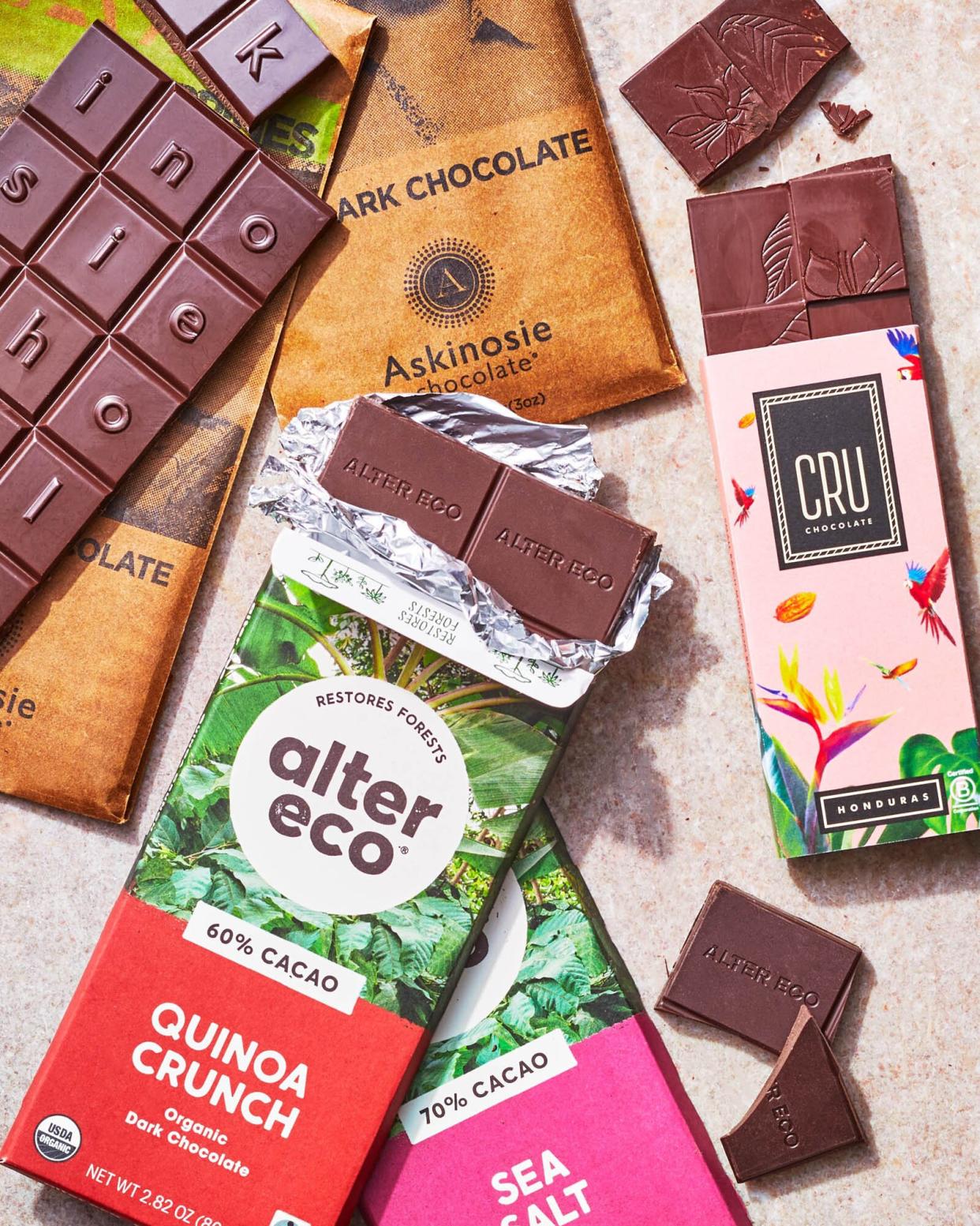F&W Game Changers: Chocolate for Change

Photo by Caitlin Bensel / Food Styling by Rishon Hanners / Prop Styling by Audrey Davis
Chocolate: food of the gods and stuff of our hearts, a luscious substance that, for more than 5,000 years, has been used to nourish, mourn, and celebrate. But over the past few decades, cacao-the colorful tropical fruit that, once processed, becomes cocoa and chocolate-and the mostly subsistence farmers who grow it (often for a mere $1 a day) have come under increasing threat.
READ MORE: Food & Wine Game Changers: 25 People and Companies Changing the Way We Eat and Drink
"The two greatest challenges of our time are climate change and inequality," says Mike Forbes, CEO of Alter Eco. "And they are inextricably linked. We won't have cocoa in a few decades if we don't transition to a more environmentally sustainable and equitable supply chain."
Fortunately, consumers can play a significant role in saving chocolate: by buying bars crafted by makers and manufacturers dedicated to sustaining the people and places behind the product. Alter Eco has helped transition 400 farmer cooperatives in Ecuador (one of the leading places where cacao is grown) to an agroforestry model that better approximates the way cacao has traditionally been grown: in lush, biodiverse environments that naturally sequester the greenhouse gases that cause climate change.
We want to remind customers at every turn that farmers are the ones who make chocolate possible.
But small is also mighty. Karla McNeil-Rueda, founder of Cru Chocolate, makes chocolate bars and disks of drinking chocolate in her sunlit kitchen in Sacramento, California. Along with her partner, Eddie Houston, she sorts, roasts, and stone-grinds products by hand. "We see cacao as food," she explains, "and want to restore that respect."
Respect starts in the communities where Cru directly sources cacao from small farmers, in Guatemala, Nicaragua, and Honduras. The couple supports farmers' efforts to purchase equipment and study agroforestry and processing methods. "The more control a farmer can have over fermentation and drying, the better," McNeil-Rueda says. This knowledge not only improves quality but also empowers farmers far beyond the harvest.
Shawn Askinosie, founder and CEO of Askinosie Chocolate in Springfield, Missouri, has been forging relationships with cacao farmers for more than 15 years. When describing his partners in Ecuador, Tanzania, and the Philippines, Askinosie uses words like "kinship" and "love"-and he means it. "We want to remind customers at every turn that farmers are the ones who make chocolate possible."
Askinosie supports farmers by featuring them on his award-winning bars but also more directly at the source: Instead of negotiating, he pays farmers what they ask for and shares company profits. In 2018, that represented 10% of the company's net income. "We truly care about each other," he says. "And you can taste it in the chocolate."

